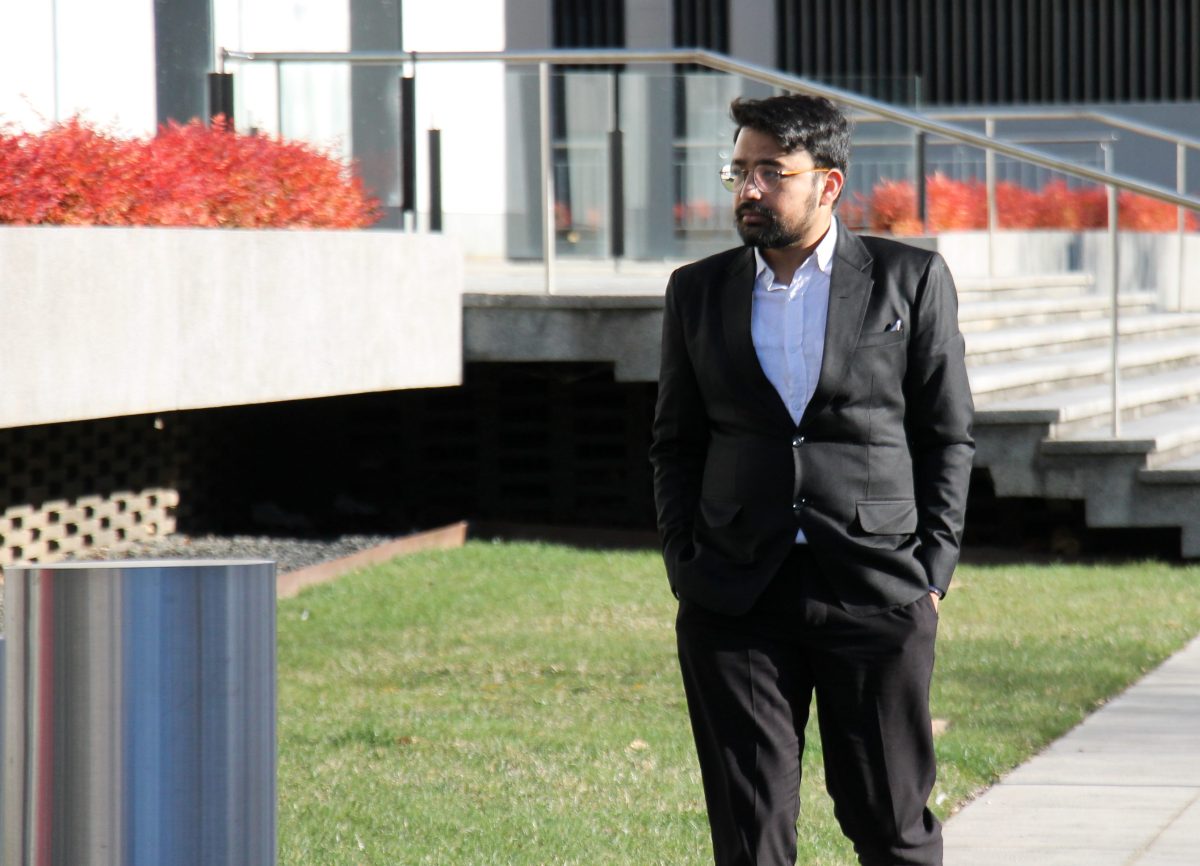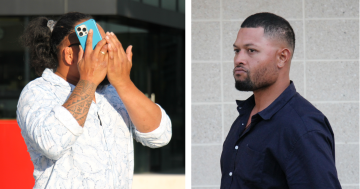
Abhishek Timalsina, 29, fought his charges in a jury trial held this month. Photo: Albert McKnight.
CONTENT WARNING: This article refers to an alleged sexual assault.
The first trial involving the ACT’s new affirmative consent laws has ended with its jurors being discharged after they were unable to reach any verdicts.
In his ACT Supreme Court trial that began earlier this month, Abhishek Timalsina, 29, pleaded not guilty to two counts of sexual intercourse without consent and four counts of committing an act of indecency without consent.
Jurors deliberated for about four days before being discharged by Justice Verity McWilliam on Friday (18 August) after they were unable to reach verdicts.
They had heard the woman’s interview with police, in which she said she had gone to an art store to buy supplies in November 2022.
It was the end of the work day and Mr Timalsina, a married store employee, pulled down the shutters to the store’s doors to stop other customers from entering.
She told him she could return another day, but he told her it was fine if she wanted to stay.
They began talking and he said he was a photographer before she alleged he “pushed” her into allowing him to take her photo, saying he would delete it afterwards.
“I felt uncomfortable and said, ‘OK’,” she claimed.
She said he gave her a hug when she told him she was uncomfortable while he was asking her to pose for the photos.
He asked if she wanted to try “something crazy” by changing into a store employee T-shirt, then told her to sit on a chair in a backroom and took her photo. He also asked if she had a boyfriend.
She claimed he then asked, “Do you want me to kiss you?”, but before she had a chance to respond, he said, “I’m just going to go for it”, and kissed her for about two minutes.
The woman claimed she pushed his hand away when he tried to unzip her jeans and she asked if the security camera in the room was working, but he replied that it wasn’t.
He then allegedly sexually assaulted her. He also asked if she wanted to perform a sex act, but she said no.
Before the first alleged rape occurred, the woman said: “I thought he was just going to do it and I guess my main concern at the time was pregnancy and I asked him if he had protection at least.”
She believed he replied: “It’s OK.”
It is alleged he then raped her twice. She said she felt “a little bit scared”, “stopped resisting” and her “mind wasn’t really working”. The incident left her feeling “sick and disgusted”.
“There were so many things I could have done differently,” she later said to a friend via a text message, saying her brain had “checked out” at the time.
Mr Timalsina told the jurors “everything” that happened before they had sex made him think he had her consent.
He thought they had been “flirting” when they were talking and taking photos.
When he asked her if he could kiss her, he claimed they had 10 seconds of eye contact before he said, “I’m going to go for it”. He claimed she approached him before they kissed passionately for two minutes.
He also alleged that just before they had consensual sex, she asked him if he had protection and he said no, but she still told him, “All right, OK”.
“If she had said ‘Stop’ or not kissed me … I would have stopped right there,” he said.
In closings submissions earlier this week, prosecutor Trent Hickey alleged Mr Timalsina had admitted he hadn’t received verbal consent to kiss or have sex with the woman.
The affirmative consent laws, introduced last year, were instituted to recognise that consensual sexual activity involves ongoing and mutual communication and decision-making.






















Simple. Announce we're going to train Australian citizens to use firearms, arm to the teeth those… View